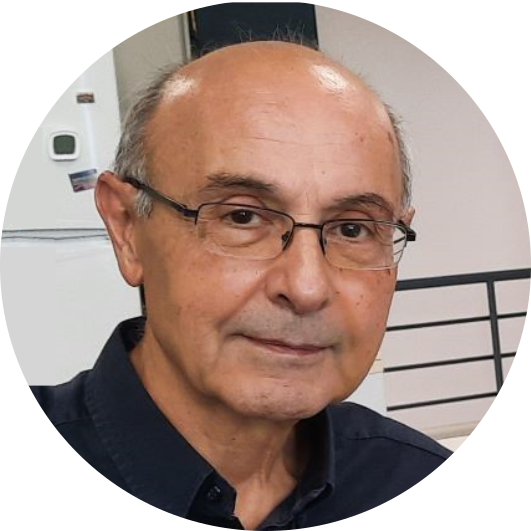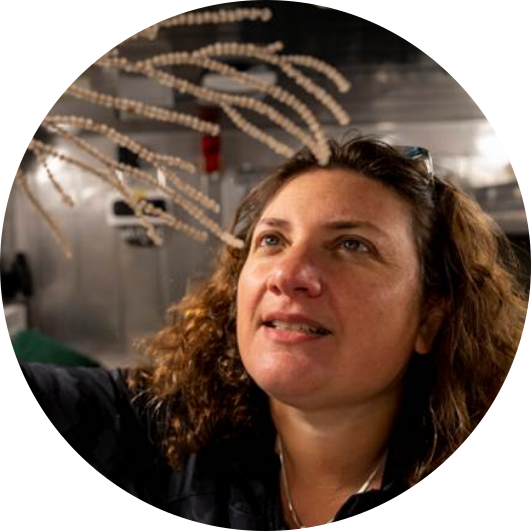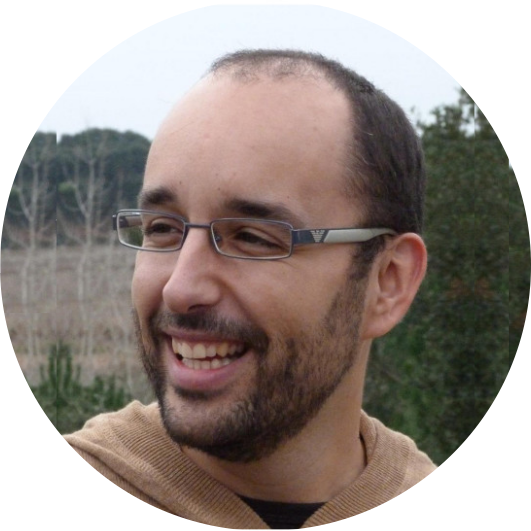
|
|
|
Symposium > Keynote speakers

Pr. Ioannis (Yannis) Karakassis
Keynote title: "Marine ecosystems in the Anthropocene: functional aspects and ecological challenges"
ABSTRACT: Life emerged in the sea and for more than 85% of the evolutionary time it had remained an exclusively marine issue. However, there are more species in the terrestrial environment than in the oceans mainly due to the spectacular speciation of insects. On the other hand, there are more marine phyla (i.e. major differentiation life plans) in the sea, almost half of them endemic to the marine realm. Differences between terrestrial and marine ecosystems involve differences between the ambient fluids but also differences in variability and predictability of marine and terrestrial ecosystems. Marine biodiversity comprises organisms with numerous functional traits resulting in multidimensional matrices showing patterns similar to those of species by samples. Furthermore, the use of traits, as opposed to species, allows comparisons among different biogeographic provinces which harbour different faunal elements. A large-scale study comparing response of benthic taxa to disturbance across ocean provinces is discussed.
BIO: Professor at the Biology Department, University of Crete, Head of the Marine Ecology Lab. Interested in structure, processes of, and human impacts on coastal marine ecosystems and biodiversity. Working on environmental impacts of aquaculture as a model of multiple interactions between ecosystem components and anthropogenic activities in the marine environment. Author and coauthor of more than 120 papers in the prime scientific literature. Member of international working groups and other scientific initiatives on marine ecology and biodiversity. During the past 30 years, he has coordinated or participated in various national, EU-funded or other international research projects.

Pr. Randi Rotjan
Keynote title: "Decoupling the dynamic duo: Examining whether and how symbiosis regulates metabolic resilience in an era of global change"
ABSTRACT: By definition, DEB Theory is inherently dynamic, embracing the flux and flow of energy acquisition and exchange between organisms and their environment. Symbiotic organisms pose additional challenges because their energetic exchange is governed by the metabolic demands and constraints of both themselves and their partners. Corals are a classic mutualism between an animal host and a photosynthetic symbiont, with reciprocal nutrient and energy flow between partners. However, this energy flow is increasingly disrupted (dysbiosis) due to drastic and extreme environmental perturbations, resulting in coral bleaching and often, mortality. In these unprecedented times, a relatively diminutive Northwest Atlantic coral is fast-becoming an important experimental system to probe the fundamentals of basic coral metabolism. This temperate coral has a facultative association with photosynthetic symbionts where the coral host can live with - and functionally without - symbionts in multiple energetic states. After a decade of study, we have found that this coral challenges long-held assumptions about coral biology, compelling us to ask (and answer) fundamental questions about symbiosis, metabolism, physiology, and evolutionary ecology with lab, field, and modeling studies. We are using the quantitative and empirical values from these studies in application of DEB theory, which has the potential to transform our holistic understanding of facultative symbioses. This talk will explore the potential of DEB theory to help understand and predict trophic flexibility of symbiotic partners under environmental stress, and how symbiosis does (or does not) contribute to metabolic resilience.
BIO: Dr. Randi Rotjan is an Associate Professor of Biology at Tufts University (transitioning from Boston University in Fall 2025). She received a B.S. from Cornell University, a Ph.D. from Tufts University, and was a Postdoctoral Fellow at Harvard University. She was previously an Associate Research Scientist at the New England Aquarium, where she simultaneously held positions at UMass Boston and the Smithsonian Institution. She is the lead scientist for the Blue Nature Alliance, which is a global partnership to catalyze large-scale ocean conservation. She has been working with corals for 25 years, and takes a broad ecological approach to coral biology across tropical, temperate, and deep-sea corals.

Dr. André Gergs
Keynote title: "Navigating the puzzle: Dynamic energy budget models for assessing environmental risks and efficacy of pesticides"
ABSTRACT: The registration of plant protection products requires comprehensive assessments of both efficacy and environmental risk, necessitating a careful balance between optimal performance and minimizing ecological impact. A mechanistic understanding of chemical behavior is vital for making accurate predictions in untested scenarios, such as extrapolating results from laboratory settings to field conditions and accounting for varying exposure situations. This complexity involves multiple levels of biological organization and the distribution and degradation of active ingredients in the environment as well as their uptake and metabolism in target and non-target organisms. Additionally, understanding life history traits and population dynamics of both pests and non-target species is crucial for effective assessments and management. In this context, toxicokinetic-toxicodynamic (TKTD) modeling, particularly Dynamic Energy Budget (DEB) modeling, plays a key role in enhancing our understanding of these interactions. (1) This presentation will first elucidate how DEB-based TKTD and population models can optimize application timing for insecticides. By integrating formulated product interactions with environmental factors, these models provide insights that enhance sustainable pest management strategies. (2) Secondly, I will illustrate the utility of DEB-TKTD models in environmental risk assessments. Through several examples, I will demonstrate how these models can be applied to address the uncertainties typically associated with those assessments.
BIO: André Gergs is an accomplished Ecological Modeller in the Small Molecule Research department of Bayer's Crop Science division. He earned both his diploma and Ph.D. in Biology from RWTH Aachen University in Germany, in addition to a diploma in Social Pedagogy from the University of Applied Sciences Cologne. Prior to joining Bayer in 2018, André served as a Postdoctoral Researcher at Roskilde University in Denmark and RWTH Aachen University. He also held the position of project manager and modeler at the gaiac Research Institute in Aachen. Since 2012, André has been sharing his expertise as a lecturer e.g. at the University of Landau in Germany and a bi-annual modelling summer school organized at the University of Copenhagen, Denmark. In recognition of his significant contributions to the field, he was appointed Senior Bayer Science Fellow in 2024.

Dr. Gonçalo Marques
Keynote title: "The Evolution of how life harnesses energy and elements, from the big bang to biodiversity"
ABSTRACT: Life emerged on our planet, which remains the only known place where its existence is confirmed. The integration of Dynamic Energy Budget (DEB) theory and Big History offers a comprehensive framework for exploring the evolution of energy use and the role of key atomic elements in shaping life on Earth. DEB theory is based on strong first principles, providing quantitative models of how organisms acquire, allocate, and utilize energy. These models can be used to link individual metabolic processes to broader ecological and evolutionary dynamics. In contrast, Big History contextualizes these biological developments within the grand narrative of cosmic, planetary, and life evolution. Here I will examine how life’s energy strategies have evolved in response to shifting environmental and biochemical constraints. Starting from the origins of essential elements in stellar nucleosynthesis to the metabolic innovations that transformed Earth’s biosphere. Key milestones such as the emergence of photosynthesis and the rise of multicellularity, will be explored through the lens of the same first principles that sustain DEB theory, providing insights into the adaptive mechanisms that have shaped biological complexity. By synthesizing these perspectives, I will highlight the deep interconnections between energy flow, elemental cycles, and evolutionary processes.
BIO: Gonçalo M. Marques is currently a Researcher and Invited Professor at Instituto Superior Técnico, University of Lisbon. He graduated in Physics Engineering and earned a Ph.D. in Physics from the University of Lisbon. In 2009 he joined the first DEB course as a student. From that year to our day, he has been part of the teaching team of the DEB course. In the meantime, he was co-responsible (together with Pr. Tânia Sousa) of developing a MOOC (Massive Open Online Course) on DEB that has been used to advance its teaching since 2018. He is also a lecturer at the University of Lisbon, teaching courses such as Foundations of Ecology and Big History. He was for several years, and is now again, part of the Board of Curators of the Add-my-Pet collection.

